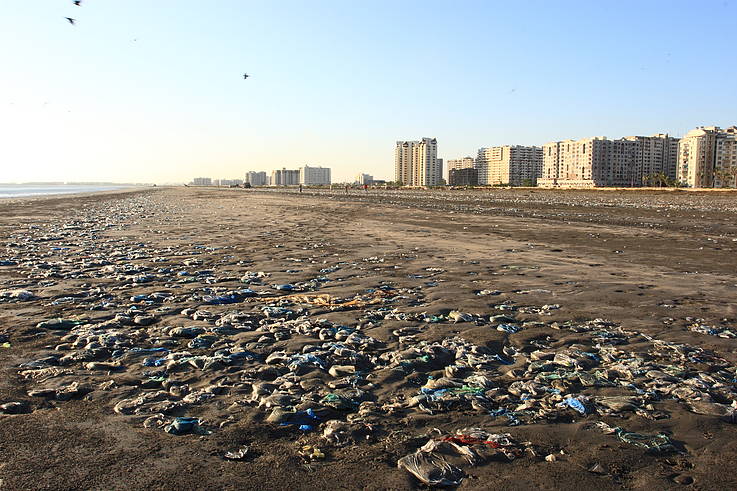The WWF is run at a local level by the following offices...
- WWF Global
- Adria
- Argentina
- Armenia
- AsiaPacific
- Australia
- Austria
- Azerbaijan
- Belgium
- Bhutan
- Bolivia
- Borneo
- Brazil
- Bulgaria
- Cambodia
- Cameroon
- Canada
- Caucasus
- Central African Republic
- Central America
- Chile
- China
- Colombia
- Croatia
- Democratic Republic of the Congo
- Denmark
- Ecuador
- European Policy Office
- Finland
Tackling Plastic Pollution in Pakistan
250 million tons of garbage in Pakistan primarily consists of plastic bags, pet bottles and food scraps.
Reusing and recycling are morally rewarding tasks in themselves because they contribute manifold to save the environment. However, WWF-Pakistan has decided to step up its rewards and give a chance to our eco-friendly participators to win numerous prizes as well. We have for you an assortment of discount vouchers, merchandise and opportunities to partake in lucky draws and spin the wheel activities. Prizes include items from high-end designers like Ali Xeeshan, Sania Maskatiya and Sapphire; discount vouchers from Arammish and Cinestar for all your entertainment and relaxation needs; and for the foodies out there we have incredible offers from Wild Wings, Jessie’s burgers and many more!
So hop on over to one of our three locations on the designated days with your plastic bottles and let the fun begin. It’s a win-win situation for everyone!
@WWF

More plastic than fish
An estimated 8 million tons of plastic waste enters the oceans every year. By 2050, it is expected that there will be more plastic in the oceans than fish. Plastics pose threat to nature by being non-biodegradable and toxic. A simple plastic bag can take up to 500 years to decompose while a plastic bottle can take around 300 years! 55bn plastic bags are being used in the country with an expected annual increase of 15 per cent in their usage. Immediate and effective steps are required to curtail the usage of plastics in order to save our country and our planet.
WWF has been trying to tackle the issue of plastic pollution through various interventions. One of the major focuses of WWF is to create nationwide awareness through advocacy campaigns, seminars and conducting beach cleaning activities.WWF has also been encouraging innovative ideas for countering plastics pollution and has funded startups, which are focusing on recycling. We are also quantifying plastic bottling waste in major cities of Pakistan to gauge the scale of plastics in Pakistan and to explore potential avenues for tackling plastic wastage. In addition to quantification, we are also monitoring plastic waste in public spots across the country like in Margalla hills. WWF also works with the communities to counter plastic pollution; fishermen have been trained to rescue marine species entangled in plastics.